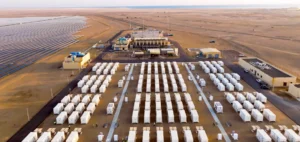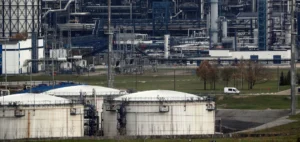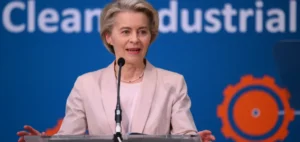US oil and gas production, which currently accounts for 20% of global oil production and 25% of global gas production, is expected to plateau before beginning to decline between 2035 and 2040, according to Wood Mackenzie’s Horizons report published on April 17. While demand for these energy sources remains robust in the short term, several factors are raising doubts about the US’s ability to maintain its leadership in energy production in the decades ahead.
The rise of low-carbon technologies, particularly in China, and the maturation of resources in the US present significant challenges. Robert Clarke, Vice President of Upstream Research at Wood Mackenzie, points out that the US has experienced remarkable success in oil and gas production over the past 20 years, but maintaining this dominance will require addressing several challenges.
Expected Decline in Production
Wood Mackenzie’s projections suggest a decline of around 1.7 million barrels of oil equivalent per day between 2035 and 2040. However, if global demand weakens earlier than expected and oil prices drop to $50/bbl, this decline could occur much sooner and be more severe. This situation could impair the sector’s ability to raise capital and maintain international trade relationships. As a result, US producers would focus more on capturing value from late-life assets.
Shifts in Global Energy Dynamics
Meanwhile, China is rapidly advancing in low-carbon technologies such as electric vehicles, battery storage, and solar cells. The report notes that China’s global market share in these technologies now exceeds the US share in oil and gas production.
Despite these challenges, the report identifies several strategies for the US to maintain its position in the global energy market. Among these are innovations in drilling technology and exploration of untapped shale resources, which could serve as crucial levers to extend production in oil basins like the Permian.
Necessary Innovations and Investments
Wood Mackenzie highlights the potential of artificial intelligence and digital tools to improve reservoir models and reduce production costs. According to Clarke, if these new technologies can lower break-even costs by $5/bbl, future tight oil projects will remain as competitive as any other global supply source.
Exploration of new shale oil reserves, particularly in the Utica and Uinta basins, is also viewed as essential. However, investments in these areas have significantly decreased in recent years, which limits the industry’s long-term potential.
Crucial Supportive Policy
The report also suggests that reforms to fiscal and regulatory policies could help facilitate infrastructure expansion, particularly for inter-state pipelines. However, while this approach is seen as promising, Wood Mackenzie warns against an over-reliance on upstream production. The global shift towards cleaner energy sources could leave the US vulnerable to structural changes in the energy sector.
An Uncertain Future for US Energy Dominance
The outlook for the US energy sector remains uncertain. While US oil and gas dominance may persist in the short term, the future is less certain as the world transitions to more sustainable energy sources. Clarke argues that balancing hydrocarbon production with investments in low-carbon technologies will be crucial for maintaining the US’s energy leadership on the global stage.






















